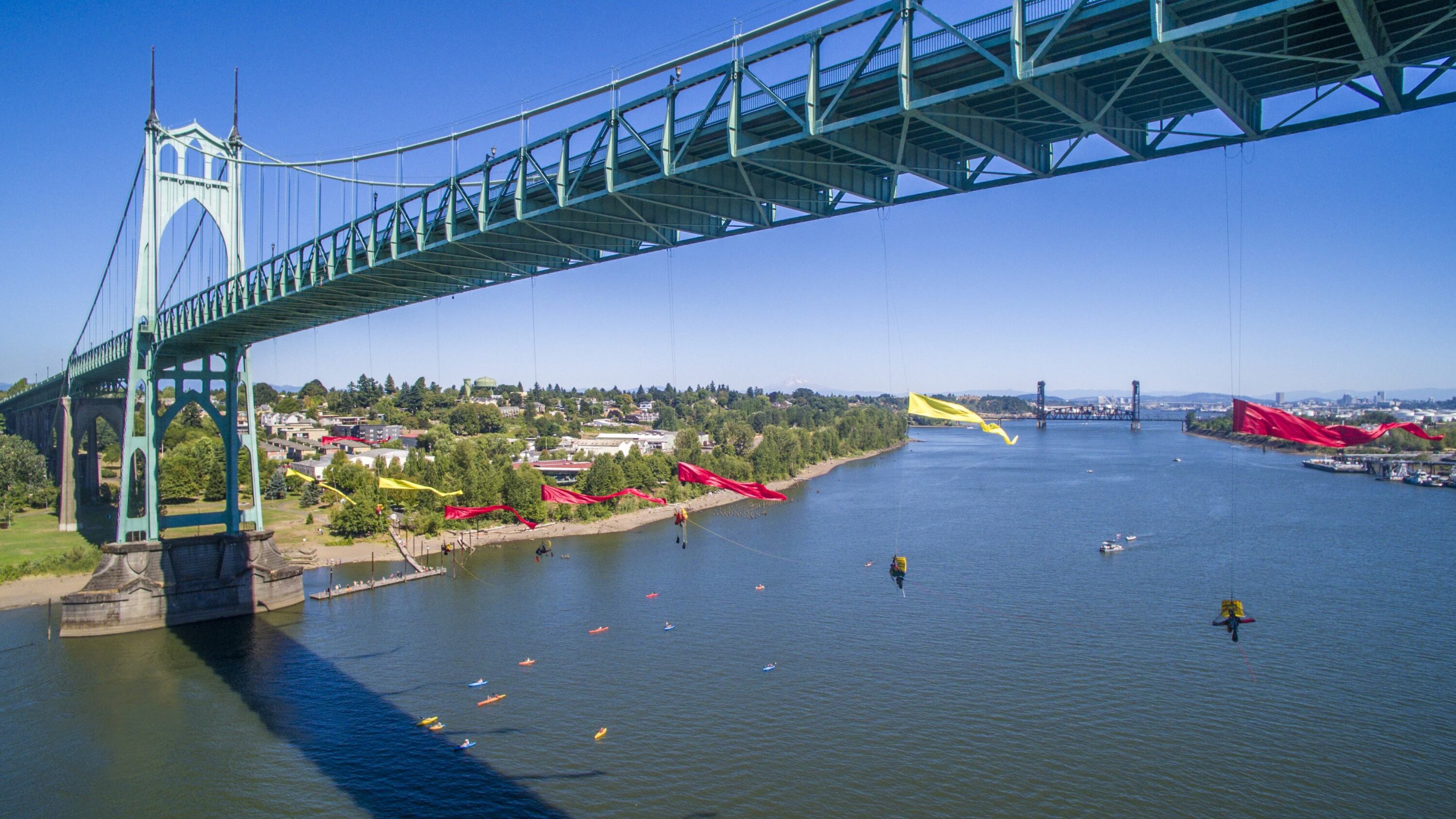The state's Land Use Board of Appeals today overturned Portland's landmark ordinance to restrict the building of fossil fuel infrastructure.
Just before leaving office, in December 2016, former Mayor Charlie Hales championed zoning change to fight climate change, barring the expansion of infrastructure used to store or transport in excess of 2 million gallons of fuel.
Fossil fuel companies and the Portland Business Alliance appealed the ordinance to the state's Land Use Board of Appeals.
Today, LUBA ruled that the new land-use regulations violated the U.S. Constitution's commerce clause, which gives Congress the power to regulate interstate commerce and limits states' ability to do so.
Mayor Ted Wheeler says the city is considering an appeal.
"This decision is disappointing and goes against the interests of our community," said Wheeler in a statement. "It is incumbent upon us to protect our residents from the enormous risks posed by fossil fuels. The City is reviewing the ruling and exploring our options, including an appeal. Additionally, we will continue to work with environmental, energy, and resiliency experts to ensure Portland remains a leader on these issues."
Environmental groups, who applauded the city's zoning ordinance, now say they are reviewing the decision.
"It's an absurd and incorrect conclusion that Portland is powerless to protect its residents from dangerous fossil fuel infrastructure," said Nicholas Caleb, staff attorney at Center for Sustainable Economy. "We will continue to fight to make sure Portland's residents and environment are protected from the risk of spills, explosions, derailments, and pollution that are inherent in the dirty practices of the fossil fuel industry."
The Portland Business Alliance did not immediately respond to a request for comment.

